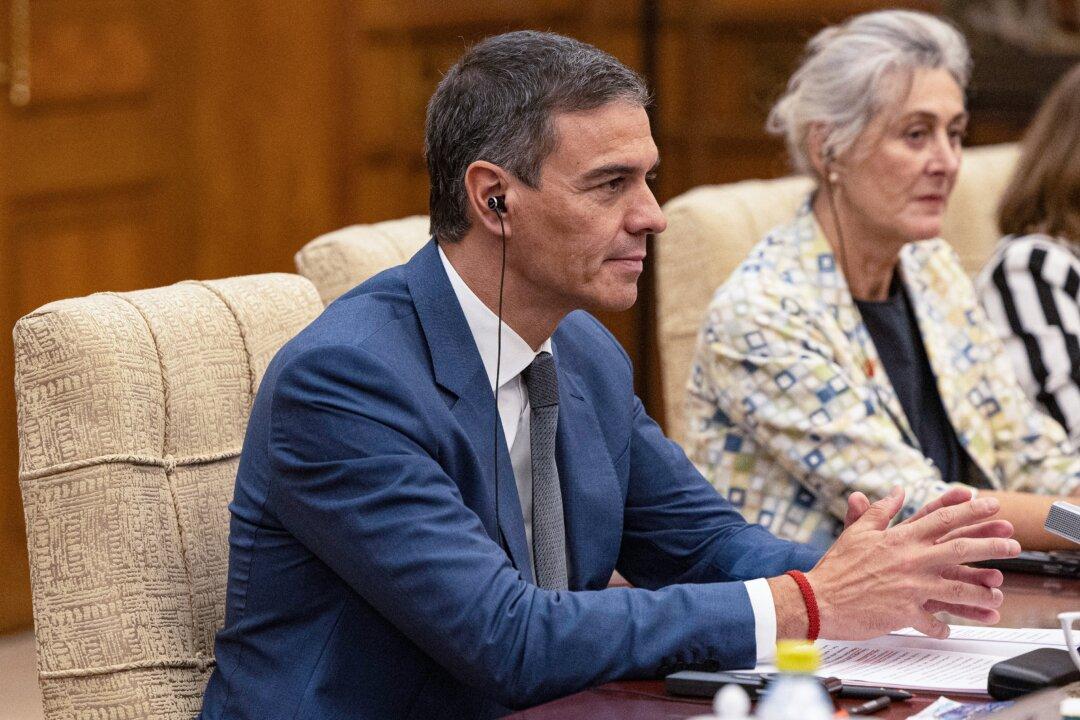Spanish Prime Minister Pedro Sánchez called for a “fair trade order” on Sept. 9 during a visit to China aimed at boosting ties with the economic giant, despite a standoff between the Chinese communist regime and the European Union.
Sánchez arrived in China on Sept. 8 and spoke with Chinese Prime Minister Li Qiang and the head of the ceremonial legislature, Zhao Leji, ahead of a meeting with Chinese Communist Party (CCP) leader Xi Jinping on Monday.





